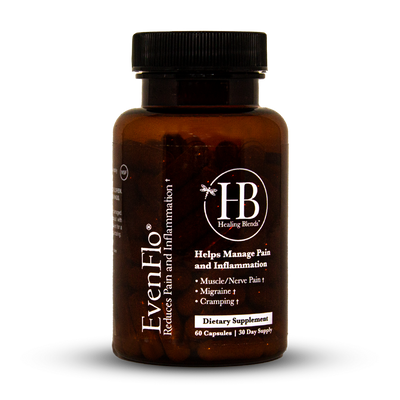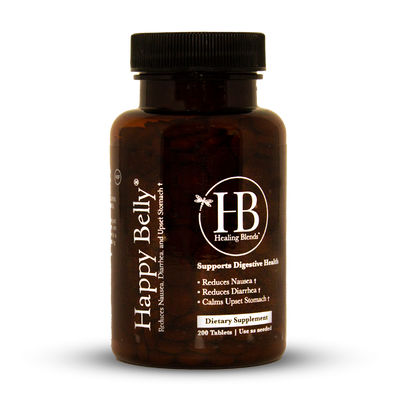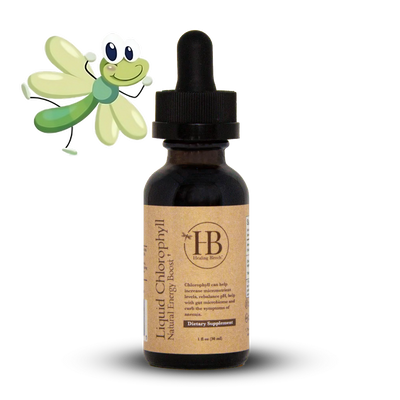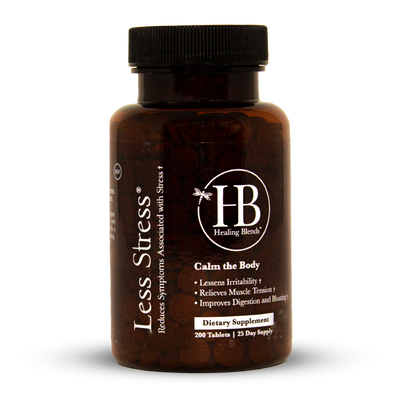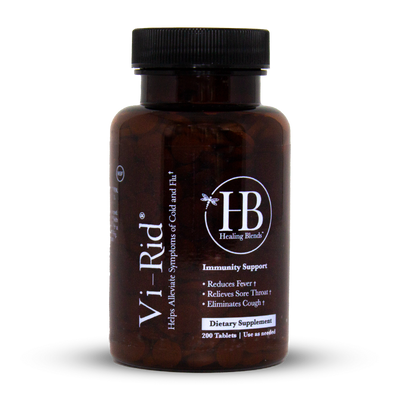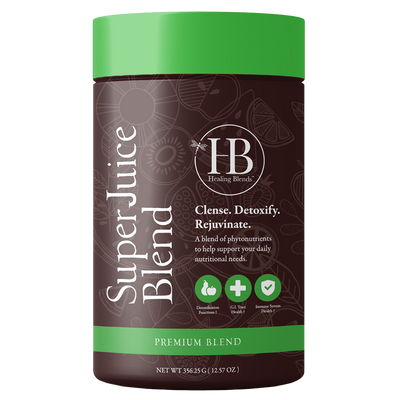Good Gut Bacteria Is The Secret To Better Skin
The skin is the largest organ of our body. It’s our ultimate barrier to harsh pollutants, toxins, UV rays, and much more. Without the skin, we can literally drop dead.
It’s no wonder why skincare has become a leading industry today and why many are obsessed with keeping their skin young, healthy, and glowing.
If you’re one of those people who desire better skin, we’ve got a secret for you. You don’t need to hop on every skincare trend. You just need to keep your gut healthy!
You read that right. Because your skin and gut are closely connected, keeping good gut bacteria happy will lead to the young and beautiful skin you’re looking for.

How does the gut microbiota affect your skin?
The gut refers to your gastrointestinal (GI) tract and is responsible for digestion, nutrient absorption, and waste elimination. It also houses trillions of microorganisms or gut microbiota, collectively called the microbiome, that significantly affect your health, including your skin.
The microbiome helps the immune system stay balanced by talking to tissues and organs in a two-way conversation (bidirectional communication). It is in this communication that the gut-skin axis exists.
This means that when an imbalance of bacteria happens in the gut (also called dysbiosis), it communicates it to the other organs it connects to, such as the skin, and alters its microbiome.
This alteration can contribute to or exacerbate the development of serious skin diseases, such as atopic dermatitis, psoriasis, acne vulgaris, dandruff, and even skin cancer.
The opposite of this scenario is also true. A diverse and balanced gut microbiome leads to healthier skin by enhancing its natural functions like protection and hydration. This contributes to overall skin health and a more vibrant appearance, reducing the likelihood of skin issues. Therefore, a happy gut translates to amazing skin.
Other gut factors that affect your skin
Aside from dysbiosis, other factors negatively affect gut health. We’re talking about leaky gut health syndrome.
Leaky gut syndrome is a state where the lining of the GI tract is more permeable than it should be.
This increased permeability allows substances that would typically be blocked, including harmful molecules and toxins, to pass through the gut lining and potentially enter the bloodstream.
When this occurs, it can trigger immune responses and inflammation, which may affect the skin.

What can a good gut microbiome do for your skin?
Studies on the interrelationship of the skin and microbial dysbiosis showed the benefits of a good gut for your skin. Here are the findings:
Beneficial gut bacteria produce anti-inflammatory substances that positively affect the skin. These compounds assist in preventing premature aging, shielding against UV damage, and even protect against skin infections.
The gut microbiome helps break down nutrients in our food and develops our immune system. It produces chemical signals that can control inflammation, crucial in preventing and managing skin conditions like rosacea, atopic dermatitis, and psoriasis.
Lastly, a healthy gut can help prevent skin allergies by better managing your body's immune responses. This is important for your skin because it means a lower chance of having allergic reactions like eczema.
Keeping your gut healthy helps keep your skin strong against these skin problems.

Tips on gut care for better skin
The good thing is when you take care of your gut bacteria, you also take care of your skin. Here are some tips you can do to achieve a good gut and better skin.
Follow a healthy lifestyle
According to recent studies, the balance and diversity of the gut microbiome are susceptible to external factors like lifestyle choices. Little to no activity, poor diet, no exercise, and constant exposure to toxins all accumulate and negatively affect your microbiome.
To support both your gut and skin health, aim for a balanced and active lifestyle that includes regular physical activity and a diet rich in whole, nutrient-dense foods.
Reduce stress
Chronic stress can add chaos to the balance of gut bacteria and affect your overall well-being, including your skin.
Practice stress reduction techniques like meditation and mindfulness to manage stress and promote a healthier gut-skin axis.
Have adequate rest and sleep
We cannot say this enough: sleep and rest are needed for proper gut health and skin regeneration. An average adult needs to sleep an average of 7-9 hours each night.
Ensure you get enough restful sleep each night, as inadequate sleep can lead to imbalances in your gut microbiome, potentially impacting your skin.
Take the right probiotics
Research has shown that certain strains of probiotics improve skin health by increasing hydration and skin elasticity and reducing wrinkles.
To ensure you are taking the right type of probiotics, it is best to ask your physician. They know what’s best for you.
Avoid a high-fat diet, sugar, and high glycemic index food
A high-fat diet, especially one high in saturated fat, can contribute to gut dysbiosis, leading to inflammation manifesting in the skin and worsening acne.
High-fat diet foods include processed meat, full-fat dairy products, fast food, and fried foods like french fries, fried chicken, and doughnuts.
Sugary and high glycemic index food causes a spike in blood sugar and insulin levels, increasing sebum production, inflammation, and worsening of acne and other inflammatory skin conditions.
Examples of food high in sugar and glycemic index are soda, chocolates, refined grains, baked desserts, and processed food.
Consult a professional
If you experience persistent skin issues or digestive problems, it’s time to seek guidance from a medical professional.
They can provide personalized advice, diagnose underlying conditions, and recommend appropriate treatments or dietary adjustments tailored to your needs.

Conclusion
The secret to achieving better-looking skin doesn’t lie in expensive skincare treatments and gadgets. It relies on listening to your body, or better yet, your gut, and taking care of it.
If you’re eager to get your gut and skin working together, there are people out there to help you.
Join our newsletter for FREE and get exclusive lifestyle, nutrition, and health advice from the gut expert, Dr. Charlie Ware. His years of experience working with genetics and the human gut allowed him to help patients who were in your shoes turn their health around.
For a more personalized approach, drop Dr. Ware a message today and learn how to start healing!
References
De Pessemier, B., Grine, L., Debaere, M., Maes, A., Paetzold, B., & Callewaert, C. (2021). Gut-Skin Axis: Current Knowledge of the Interrelationship between Microbial Dysbiosis and Skin Conditions. Microorganisms, 9(2), 353. https://doi.org/10.3390/microorganisms9020353
Ferraretto, A., Donetti, E., García-Mena, J., & Pacheco-López, G. (2023). Editorial: The gut-skin-brain axis in human health and disease. Frontiers in nutrition, 10, 1155614. https://doi.org/10.3389/fnut.2023.1155614
Gao, T., Wang, X., Li, Y., & Ren, F. (2023). The Role of Probiotics in Skin Health and Related Gut-Skin Axis: A Review. Nutrients, 15(14), 3123. https://doi.org/10.3390/nu15143123
Mann, E. A., Bae, E., Kostyuchek, D., Chung, H. J., & McGee, J. S. (2020). The Gut Microbiome: Human Health and Inflammatory Skin Diseases. Annals of dermatology, 32(4), 265–272. https://doi.org/10.5021/ad.2020.32.4.265
Martinez, J. E., Kahana, D. D., Ghuman, S., Wilson, H. P., Wilson, J., Kim, S. C. J., Lagishetty, V., Jacobs, J. P., Sinha-Hikim, A. P., & Friedman, T. C. (2021). Unhealthy Lifestyle and Gut Dysbiosis: A Better Understanding of the Effects of Poor Diet and Nicotine on the Intestinal Microbiome. Frontiers in endocrinology, 12, 667066. https://doi.org/10.3389/fendo.2021.667066
Ratanapokasatit, Y., Laisuan, W., Rattananukrom, T., Petchlorlian, A., Thaipisuttikul, I., & Sompornrattanaphan, M. (2022). How Microbiomes Affect Skin Aging: The Updated Evidence and Current Perspectives. Life (Basel, Switzerland), 12(7), 936. https://doi.org/10.3390/life12070936












